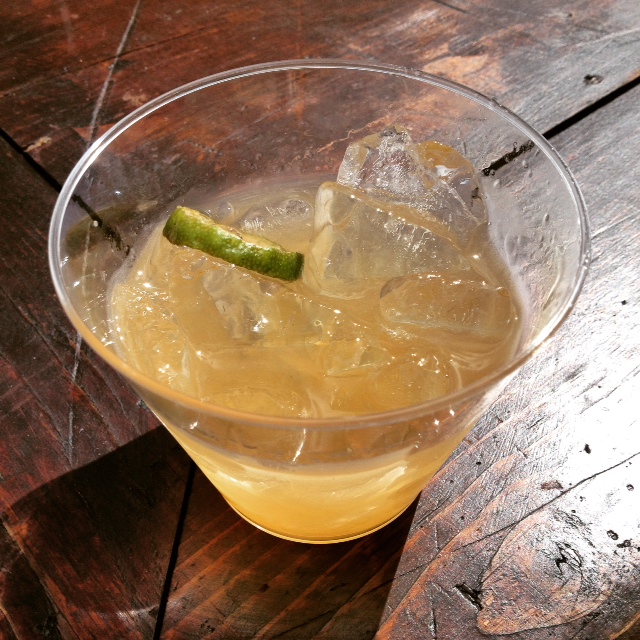|
Hello, all. It’s been awhile since I’ve posted, so forgive the absence (and this will be cross-posted on the new law firm website and vice versa on beerofsc.com. This seemed as appropriate a time as any to get going again since the phone won’t stop ringing about this special event/nonprofit issue that you might have heard about. To make a long story short in the introduction (before we get too lawyerly), here’s the deal - for many years, special events and nonprofit organizations (such as beer festivals, wine festivals, wine and food events, and tastings of XYZ city) have done things a certain way and have gotten used to it - that being the way that alcohol was both acquired by the special event (usually via donation from a producer or wholesaler) and then presented to the consumer at the event (by the producer). However, recently, SLED is attempting to enforce laws that have been on the books since the 1990s, but have only recently been paid attention to. These enforcements present many problematic issues for a lot of industry stakeholders. THE BACKGROUND Really quickly so we can get to the other issues - let’s talk about the backdrop here - the three-tier system (which could be worthy of its own blog post explaining it all). You’ve probably heard the term before. It’s an easy way of referring to how alcohol gets to consumers within the system. The three tiers are the producer tier, the wholesale tier, and the retail tier. In practice, here is how it works - a producer makes alcohol and then sells it to a wholesaler. The wholesaler then picks up the alcohol, stores it at their facility, and then sells it and delivers it to a retailer when an order is received. The retailer then sells it to you the consumer when you come to the store. In its purest form, producers can only sell to wholesalers, wholesalers can only sell to retailers, and retailers can only sell to consumers. And there are certain exceptions that we can save for discussion for another day. This system was adopted after Prohibition and was created to control consumption and so as to avoid any issues with what are called tied houses, which we will talk about shortly. South Carolina has carried the system for quite awhile, but the most recent incarnations of the laws that are on the books come from the 1990s. THE SPECIAL EVENTS LAW So, what does this system have to do with special events and nonprofits? Aren’t those outside of the system? Well, actually no. They aren’t. They have only been treated that way. So, where is this special events law that we keep talking about? Where is it and what is DOR and SLED seeing in it? (Remember DOR interprets the laws and SLED enforces them). Let’s take a look. We’ve already briefly run down what the three-tier system is, so these are the sections which codify it - that is to say, where the law is actually the law. S.C. Code Ann. Section 61-4-735 for wine and S.C. Code Ann. Section 61-4-940 for beer. We’ll break down small parts of those sections. As to wine, the law reads: [with certain exceptions], a manufacturer of wine . . . must not sell, barter, exchange, transfer, or deliver for resale wine to a person not having a wholesale permit . . . [and] . . . a manufacturer of wine . . .must not furnish, give, rent, lend, or sell, directly or indirectly, to the holder of a retail permit any equipment, fixtures, free wine, or service. The beer law is basically the same: A manufacturer or brewer must not sell, barter, exchange, transfer, or deliver for resale beer to a person not having a wholesale permit . . . [and] . . . a manufacturer, brewer, importer, or wholesaler of beer . . . must not furnish, give, rent, lend, or sell, directly or indirectly, to the holder of a retail permit any equipment, fixtures, free beer, or service. Spirits are somewhat similar, so I’ll just lump them in as well without getting too bogged down. So, the law says pretty clearly that if you make alcohol, unless certain exceptions apply (which we won’t tackle today), then you have to sell to a wholesaler who will then sell and deliver it to the retailer, and as a producer, you cannot give any equipment, free booze, or service to a retailer. But, where are we reading all of this other stuff into the law? You’ll notice that the word “service” was included in those provisions. What does it mean? Well, there’s no definition in the code or regulations, so it could mean anything. But usually, when we don’t have words defined in the code, us lawyers typically give them their normal meaning. For lack of a better definition, we’ll just say that a service occurs when you do something for someone. What kinds of things would be services? Well, DOR says pouring beer or wine is a service. Providing a jockey box is a service. Perhaps even providing a tent could be a service. You get the idea. Most actions would probably fall under that broad definition. The only exception now being made is for the producers to stand near the pouring station and talk about their products in an effort to educate the consumer. But, that’s it. Could that also be considered a service? Arguably, yes. But DOR is saying that is fine, so there you go. But that doesn’t leave a lot for producers to do. Basically, the law wants them to sell their product and that’s it. The rest is up to the event. Now, why is the law written this way? A lot of people seem to think that these laws are favorable to wholesalers or somebody else. Well, actually that isn’t the case. These provisions are done as a preventative measure from producers influencing retailers. Before Prohibition, that was a big thing - something called Tied Houses, which if you’ve been to London, you’ve no doubt seen all the various pubs there. And those pubs are usually tied to a certain producer like Fuller’s, Samuel Smith, etc. South Carolina seeks to prevent that kind of situation by having independent retailers. And that’s a good thing. You wouldn’t want one the big global brands to provide a ton of free stuff to a particular retail account which could be exchanged for locking out all other brands. So, it’s beneficial to have in that respect. What about the argument that these laws favor wholesalers? Well, not really. The wholesale tier is independent. Yes, the law allows wholesalers to provide certain things of nominal value - gaskets, hoses, clamps, etc. But, really they are there to help producers sell beer and work with their retail accounts to present the beer appropriately. So, ok. We get that producers can’t do these things for traditional retailers. But what does that have to do with a special event or a nonprofit event? Well, that’s where we are where we are. Nonprofits and special events are declared by DOR to be treated as retailers. So, whether you are a for profit event or you’re a nonprofit putting on an event to raise money for medical research, environmental protection, or adopting puppies, then you’re going to be subject to the same laws as the for profit liquor store down the street. Seem fair? It probably isn’t in some ways, but in the eyes of the law, nonprofits are going to sell alcohol to get money, which puts them on the same playing field as everyone else. WHAT WILL BE CHANGING What then exactly will be changing about events (whether profit or nonprofit) going forward? Well, it depends. In the eyes of the law, these are the changes that should be made (or really, should have been happening all along). Regardless, assuming the event is operating within the law, here is what you can expect going forward:
WINNERS, LOSERS, & WHY NOW? Now, that we have a sufficient backdrop, the next questions most people will ask will probably be "if these laws have been on the books for nearly 20 years, why are they just now being enforced?" Another question might be "under this new enforcement regiment, who wins and who loses?" Well, in a sense, both questions can go together. The biggest winner in this situation is the state government. They are most likely ensuring that tax revenues are collected. And why now? In a time when craft alcohol is at an all-time high and with budgets being cut, the added revenue is especially important. As an example, the state's craft beer industry has grown from $250M to $450M in just the last few years. With the state's alcohol excise tax being some of the highest rates in the country ($0.77 per gallon on beer, $2.72 per gallon on spirits, and $0.90 per gallon on wine), the state can secure more revenue by eliminating donations (assuming that taxes were not always paid). If you were the state, you would do the same thing and not leave money on the table. And the law says what it says. If it is changed, then the government will adjust accordingly. They're also looking to educate alcohol industry members. Despite what some think, the government wants its industry members to be in compliance. And this is a big lesson for many to learn. Other winners? Well, bigger producers arguably win. Most special events focus on smaller producers whose products cost more to make. Financial pressures on organizers with small budgets could force a decision to purchase less expensive and desirable products or just the cancellation of events altogether. What about losers? Well, nonprofits have to be the biggest loser. Without a donation stream for events from producers and wholesalers, the need to pay for the products will fall on them. As alcohol isn't cheap, that means that a lot of events will need to sell a lot of tickets just to break even. That's a lot of pressure. Another loser would be just festivals and events (and festival goers) in general for similar reasons - not just in the high costs they will have to undergo, but also for the experience that they are able to offer festival goers. Now, certainly festival attendees won't care how products get there and what it costs. They care about the best bang for their buck. By losing some producers and the ability for producers to pour, the experience will be lessened. It is also lessened if an event's volunteers happen to go AWOL so they can enjoy the event when there are few volunteers and long lines. By adding expenses, ticket prices will go up, which might keep many at home - especially if the experience is not going to be as good. You can also expect that there will be less special events, whether nonprofit or for profit as the costs might be too high. Certainly, wholesalers and producers lose as well. Now, one could argue that both benefit in the sense that without donations, both can be paid for products. Maybe, but that's a bit of a crass way to look at the situation. Historically, both have been very locally focused and incredibly philanthropic and take pride in the causes that they support. Taking away that ability hurts everyone. Both also lose in that added regulation makes it more difficult to pull events off to begin with. Most people aren't aware of the behind the scenes work that goes on between the various parties to make an event happen. Adding extra steps will make things much more difficult and potentially lessen interest in participating. WHAT WILL PROBABLY HAPPEN As we speak, legislators are hearing from various nonprofits and event organizers from across the state. There is no question that a fix to the issues will be on a piece of legislation. Unfortunately, it isn’t an issue that can be addressed in the General Assembly’s special session. So, it will have to sit until January when the General Assembly reconvenes for the new session. Thus, for the next six months and probably more until the bill passes next year (assuming it does), folks will have to deal with it. The good news is that this is an issue that a big coalition of folks could come together on - various producers, wholesalers, event organizers, nonprofit organizations, hospitality industry members, and so on. So, support would most likely be broad. And that’s a great thing to have when any bill involving alcohol comes down the pipe. The other option is to just let the law stand and have nonprofits pay for alcohol. This is the way that other states operate. What will happen? Time will tell. Certainly, if this is an issue that you're concerned about, you can always contact your State Senator or Representative. If you don’t know who your legislators are, then you can use this tool: http://www.scstatehouse.gov/legislatorssearch.php - just keep in mind that several legislators might not be returning due to retirement or the outcome of recent elections. Several are even going through runoffs this week. So, keep on the lookout for those returns. CONCLUSION Certainly, the new enforcement protocols are going to affect a lot of people. It is true that there won’t be much impact on events that have been buying alcohol from the start. But for nonprofits used to donations, this is a game changer and potentially, a dire one. The blame shouldn’t be placed on producers as they are just wanting to do something for worthy causes. The blame shouldn’t be placed on SLED as they are just doing their job which is enforcing what the law says. The blame shouldn't be placed on wholesalers as the law is the law and they have to abide by it, and now, do more work because of it. The blame shouldn’t be put on DOR as their interpretation of the law isn’t completely without basis and you'd do the same thing if you were in their position. The blame should be put on both years of inconsistent enforcement of alcohol laws and on laws that are in big need of modernization to accommodate an evolving Palmetto State, and certainly, there are plenty of those laws in the South Carolina code in many industries that could use some help. BROOK BRISTOW Brook Bristow is a South Carolina-based lawyer at Bristow Beverage Law, who primarily counsels companies in the alcohol industry on business and employment laws, as well as on compliance, licensing, and intellectual property. He is the author and editor of the Beer of SC Blog. You may reach him directly at [email protected] or [email protected]
4 Comments
|
AuthorBrook Bristow is a South Carolina-based lawyer at Bristow Beverage Law, who primarily counsels companies in the alcohol industry on business and employment laws, as well as on compliance, licensing, & intellectual property. You may reach him directly at: [email protected] Archives
April 2024
Categories |





 RSS Feed
RSS Feed